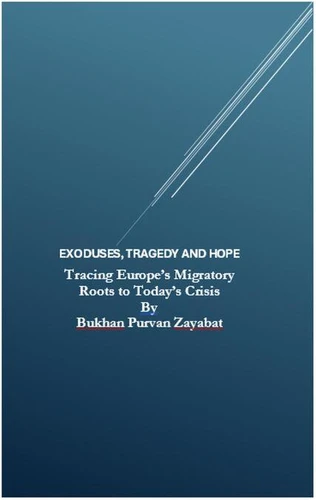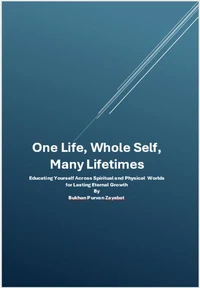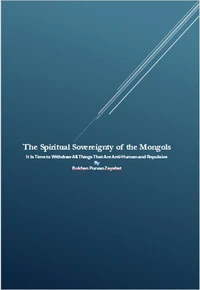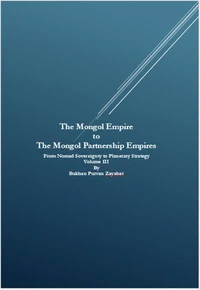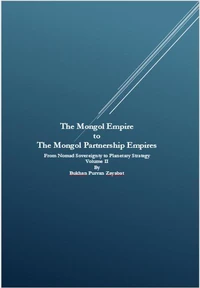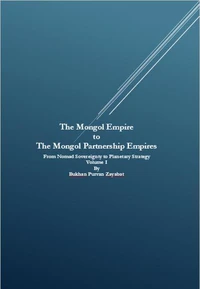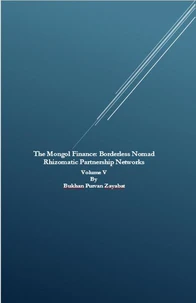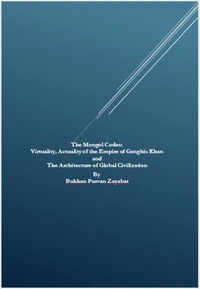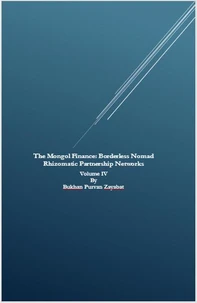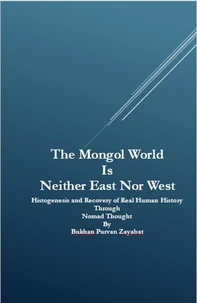Exoduses, Tragedy and Hope: Tracing Europe’s Migratory Roots to Today’s Crisis
Par :Formats :
Disponible dans votre compte client Decitre ou Furet du Nord dès validation de votre commande. Le format ePub est :
- Compatible avec une lecture sur My Vivlio (smartphone, tablette, ordinateur)
- Compatible avec une lecture sur liseuses Vivlio
- Pour les liseuses autres que Vivlio, vous devez utiliser le logiciel Adobe Digital Edition. Non compatible avec la lecture sur les liseuses Kindle, Remarkable et Sony
 , qui est-ce ?
, qui est-ce ?Notre partenaire de plateforme de lecture numérique où vous retrouverez l'ensemble de vos ebooks gratuitement
Pour en savoir plus sur nos ebooks, consultez notre aide en ligne ici
- FormatePub
- ISBN8231149520
- EAN9798231149520
- Date de parution11/06/2025
- Protection num.pas de protection
- Infos supplémentairesepub
- ÉditeurWalzone Press
Résumé
Exoduses, Tragedy and Hope: Tracing Europe's Migratory Roots to Today's Crisis offers a sweeping analysis of forced migration from medieval serf flights to twenty-first-century refugee flows. Drawing on case studies-from the English Peasants' Revolt and Renaissance intellectual exiles to Huguenot refugees, Holocaust survivors, and modern-day Syrians, Eritreans, Venezuelans, Chinese, Ukraine, Russian-this book demonstrates how Europe's own history of displacement has shaped its identity and moral responsibilities.
Rather than viewing migration as a security threat, the author argues for "source resolution": addressing dictatorship, corruption, economic injustice, and climate stress at their origins. Proposals include transforming NATO into a Free World Treaty Organization dedicated to democratic liberation and development of all human beings from the Authoritarian regimes, promoting fair trade and debt relief, and pressuring authoritarian regimes through targeted sanctions and civil-society support.
Ultimately, Exoduses, Tragedy and Hope reframes migration as a universal right to flee and to flourish, calling for a global ethic of hospitality, local empowerment of newcomers, and a just international order in which borders no longer divide shared human suffering.
Rather than viewing migration as a security threat, the author argues for "source resolution": addressing dictatorship, corruption, economic injustice, and climate stress at their origins. Proposals include transforming NATO into a Free World Treaty Organization dedicated to democratic liberation and development of all human beings from the Authoritarian regimes, promoting fair trade and debt relief, and pressuring authoritarian regimes through targeted sanctions and civil-society support.
Ultimately, Exoduses, Tragedy and Hope reframes migration as a universal right to flee and to flourish, calling for a global ethic of hospitality, local empowerment of newcomers, and a just international order in which borders no longer divide shared human suffering.
Exoduses, Tragedy and Hope: Tracing Europe's Migratory Roots to Today's Crisis offers a sweeping analysis of forced migration from medieval serf flights to twenty-first-century refugee flows. Drawing on case studies-from the English Peasants' Revolt and Renaissance intellectual exiles to Huguenot refugees, Holocaust survivors, and modern-day Syrians, Eritreans, Venezuelans, Chinese, Ukraine, Russian-this book demonstrates how Europe's own history of displacement has shaped its identity and moral responsibilities.
Rather than viewing migration as a security threat, the author argues for "source resolution": addressing dictatorship, corruption, economic injustice, and climate stress at their origins. Proposals include transforming NATO into a Free World Treaty Organization dedicated to democratic liberation and development of all human beings from the Authoritarian regimes, promoting fair trade and debt relief, and pressuring authoritarian regimes through targeted sanctions and civil-society support.
Ultimately, Exoduses, Tragedy and Hope reframes migration as a universal right to flee and to flourish, calling for a global ethic of hospitality, local empowerment of newcomers, and a just international order in which borders no longer divide shared human suffering.
Rather than viewing migration as a security threat, the author argues for "source resolution": addressing dictatorship, corruption, economic injustice, and climate stress at their origins. Proposals include transforming NATO into a Free World Treaty Organization dedicated to democratic liberation and development of all human beings from the Authoritarian regimes, promoting fair trade and debt relief, and pressuring authoritarian regimes through targeted sanctions and civil-society support.
Ultimately, Exoduses, Tragedy and Hope reframes migration as a universal right to flee and to flourish, calling for a global ethic of hospitality, local empowerment of newcomers, and a just international order in which borders no longer divide shared human suffering.

